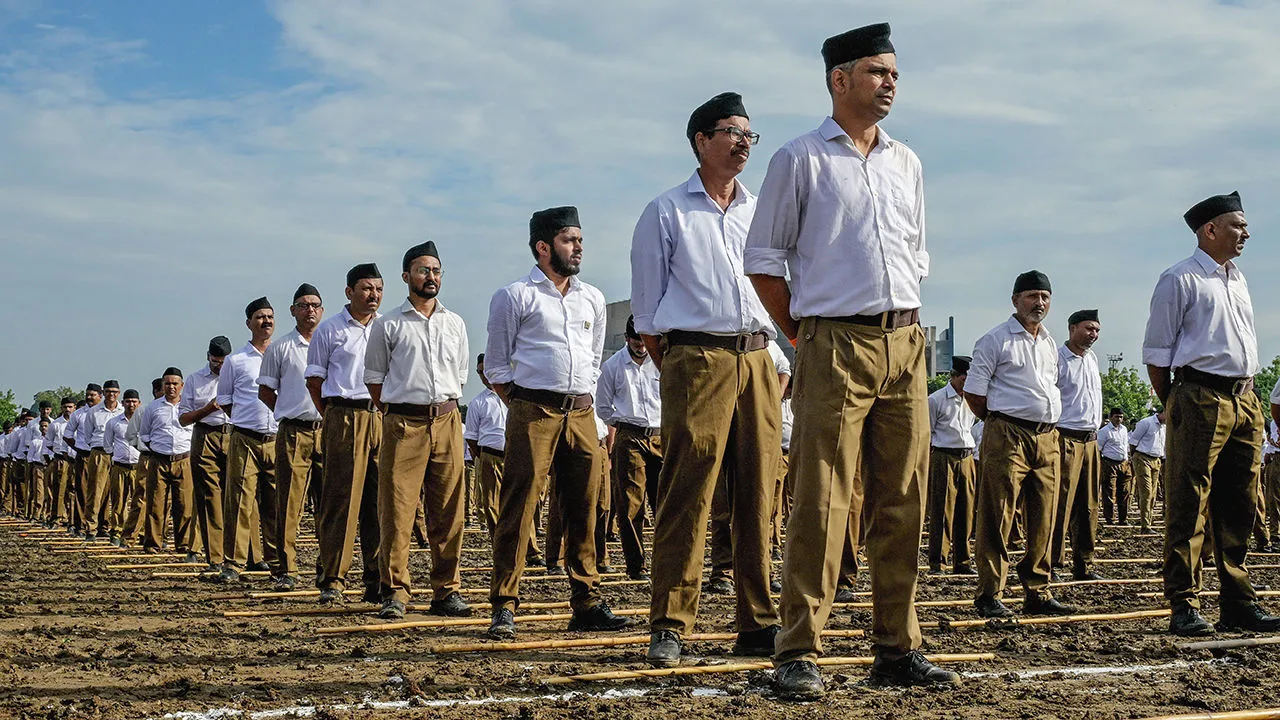
By any measure, Rahul Gandhi’s latest remarks are political dynamite. With a few blunt sentences, he peeled away the shiny marketing label of “world’s largest democracy” and exposed the machinery underneath, a state held hostage by the ideology of Hindutva.
For decades, India’s establishment has thrived on a carefully cultivated global image: an inclusive democracy, home to a vibrant press, and blessed with “strong institutions.” Western capitals swallowed the story whole. Even in Pakistan, there were voices who grudgingly pointed to India’s Election Commission as a model, praising its “independence” and contrasting it with our own messy politics. But Rahul Gandhi has just told the world what many Indians already whisper: the Election Commission has been reduced to a compliant servant of the RSS-BJP combine. It no longer stands above politics. It sits in Modi’s pocket.
India’s international friends once praised it as a counterweight to China, a democratic partner in the Indo-Pacific, a market of a billion eager consumers. Rahul Gandhi’s revelations have put a crack in that narrative.
The electronic voting machine now appears more like a magician’s prop than a democratic tool. The complaints are no longer just from the Congress benches. Retired officers like Major General Anil Verma are openly saying that the system has been bent, maybe broken. When veterans of the Indian establishment start saying the game is rigged, you know the problem is deep.
Modi’s failures are not confined to ballot boxes. On the military front, his recklessness has exposed India’s vulnerabilities in full public view. For years, the Indian army was hyped as an unstoppable force. That illusion was shattered with “Operation Sindoor.”
It’s déjà vu for those who remember the Balakot fiasco. Back then, Modi’s excuse was that India didn’t have Rafale jets. This time, he had the Rafales and still walked away embarrassed. The problem isn’t the hardware; it’s the arrogance and poor strategy behind it.
Diplomatically, the “New India” brand is looking battered. There was a time, not long ago, when Indian analysts cheered Donald Trump’s election victory, convinced that Washington and New Delhi would reshape South Asia together and leave Pakistan “isolated.” Today, it’s Modi who looks increasingly isolated. Trump has taken to publicly needling him, even going as far as writing to Gurpatwant Singh, the leader of the Khalistan movement, a move that would have been unthinkable a few years ago. For India’s foreign ministry, this is a humiliation that cannot be spun away.
Canada, too, is now openly accusing India of carrying out targeted killings on its soil. This isn’t the language of quiet diplomacy; it’s the language of public indictment. Modi has managed to push India into a place where old friends are starting to sound like adversaries.
The much-hyped “economic miracle” has also begun to look shaky. New Delhi’s arrogance over being an irresistible consumer market has been punctured. U.S. tariffs under Trump delivered a blow whose effects are already visible in slowed growth and rising economic anxiety.
But the most profound damage is internal. Whatever one thought of Indian democracy before, there was at least the perception that India was a democratic state. That curtain has fallen. Rahul Gandhi and Major General Verma have shown the audience what lies backstage: one of the most aggressive religious-nationalist projects in the modern world, run by the RSS for the benefit of one community and one ideology. In Modi’s India, loyalty to the state is measured not by law or constitution, but by conformity to Hindutva’s worldview. The capture is so complete that even the electoral process has been Hindutised.
Rahul Gandhi is protesting this political heist. He is not alone. Across India, small but growing pockets of resistance are beginning to see Modi not as a strongman saviour, but as a cult leader who has seized the levers of state, the military, and even the ballot box.
India’s international friends once praised it as a counterweight to China, a democratic partner in the Indo-Pacific, a market of a billion eager consumers. Rahul Gandhi’s revelations have put a crack in that narrative. Modi still wears the crown, but the shine is wearing off.
Source: https://dailytimes.com.pk/1352589/hindutvising-indian-democracy/


